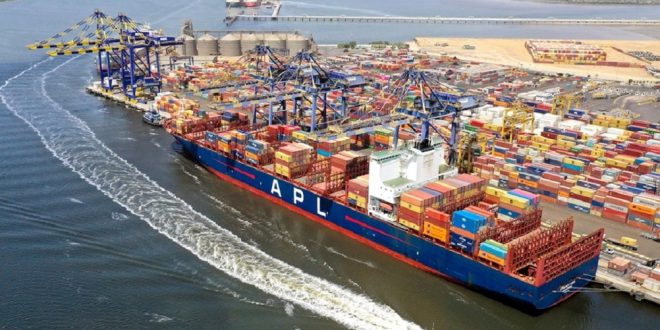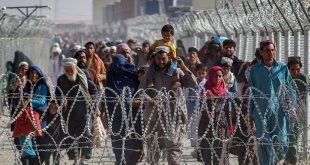AT News
KABUL – In a development that has sent ripples through the trade community, Pakistan has imposed stringent restrictions on the transfer of goods, leading to a significant halt in commercial activity at Karachi Port. Approximately 8,700 containers carrying essential commodities have been brought to a standstill, and Afghan traders are grappling with the financial burden this presents.
Each container now carries an additional cost, with Pakistan imposing a fine of USD 200 for every container, leaving Afghan traders facing substantial financial losses. Khan Agha Gulzad, the head of the Afghan Merchants Union in China, voiced the growing concern, saying, “If the containers are not allowed, we have no choice; we either go to the United Nations or the European Union to solve the issue.”
Amid this mounting challenge, Afghan traders are urging the Taliban administration to address the issue through diplomatic means. Zabihullah, a member of the Afghan Merchants Union in China, stated, “We respectfully request the current administration of Afghanistan to resolve the issue via diplomatic and understanding means. This is a severe economic blow to Afghanistan’s national businessmen and its people if left unresolved.”
This move by Pakistan has also drawn criticism from officials representing the Afghanistan-Pakistan joint chamber. They contend that such restrictions and barriers to transit goods go against established principles and commercial laws. They emphasize the need to avoid such practices to maintain smooth trade relations between the two countries.
Concurrently, the Ministry of Industry and Commerce in Afghanistan has responded to the challenges posed by goods in transit through Pakistan. MoIC spokesperson Abdulsalam Jawad Akhundzada pointed out, “Unfortunately, what Pakistan is doing is against all international laws. Therefore, we are exploring alternative solutions to reach our trade goals.”
The situation at Karachi Port continues to evolve, and Afghan traders, along with international entities, are closely monitoring the developments as they seek a resolution to this issue.
 Afghanistan Times
Afghanistan Times




